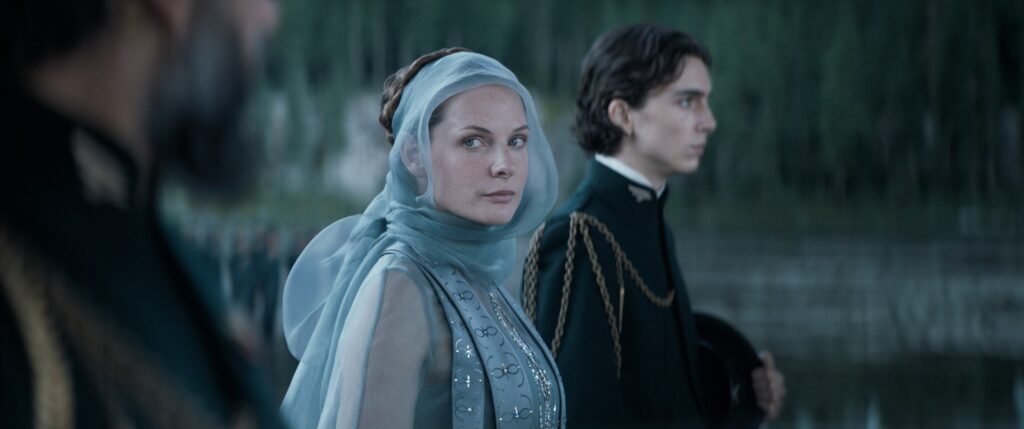
Denis Villeneuve’s attempt at filming the allegedly unfilmable science fiction novel by Frank Herbert is something of a mixed bag. Dune: Part One (2021) takes itself very seriously, dispensing with the campy kink of David Lynch’s version and the melodrama of the miniseries from 2000. This seriousness stems in large part from Denis Villeneuve’s preservation of several key themes and concerns from the novel that have, till now, fallen by the wayside; most notably the effects that the exploitation of natural resources on Arakis have on the indigenous people.
Denis Villeneuve never tries to be as visually inventive as Lynch. Instead Villeneuve plays towards his strengths in conjuring epic special effect set pieces that look as tangible as anything in real life. The trade-off here is that Dune: Part One has the bland color palette of a Marvel movie. Intentionally or not, this comes off a bit like Villeneuve trying to make his space opera feel more gritty and adult.
But the weakest link in Dune: Part One is Timothée Chalamet. Chalamet’s Paul Atreides comes across as a fifteen year old boy who has just read The Catcher In The Rye for the first time. Atreides appears equal parts confused, depressed, and unmotivated. The attempts by his more talented co-stars Rebecca Ferguson and Oscar Isaac to give weight to or add a chemistry to Chalamet’s performance yield no fruit. If one didn’t know better one might suspect that Denis Villeneuve shot every individual cast member’s coverage alone in front of a green screen.
It’s only fair to point out that the anticipation for this unfinished epic was so great that probably no film could live up to expectations. Such is the curse of Dune. Perhaps if Denis Villeneuve is able to finish the movie with its expected Part Two this first installment will begin to take on real form. As it is now Dune: Part One is an awful lot like some unaired episode of Game Of Thrones.
